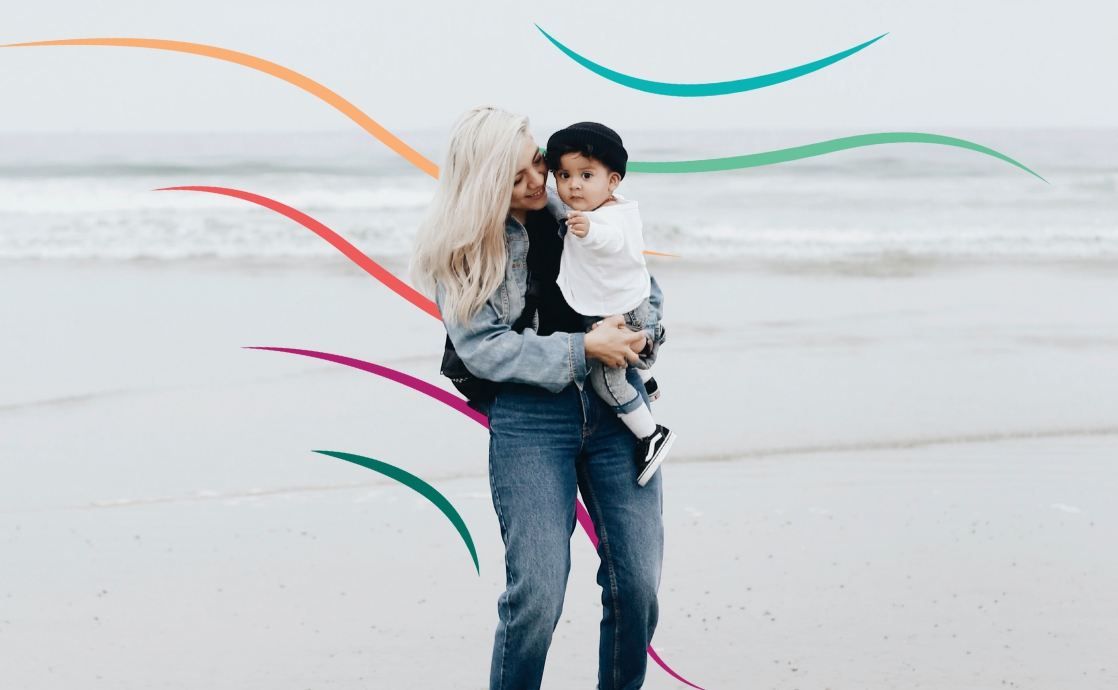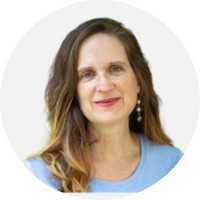The views expressed in our content reflect individual perspectives and do not represent the authoritative views of the Baha'i Faith.
For eight years, my husband and I wanted a baby. We went through a miscarriage and countless months trying to conceive. Almost ready to give up, I finally became pregnant again, this time with twins!
We were elated – and also terrified.
RELATED: How We Built a Step Family Through Emotional and Spiritual Tests
The pregnancy and birth went well, but from the beginning of life outside the womb, one of our sons had developmental delays and physical challenges. Just before he and his brother turned two, he was officially diagnosed with autism. The news was not unexpected, but crushing just the same. I wondered if we, his parents, were up to the challenge of raising him. Did we have the inner resources to provide what he would need, and what our other son would need as his brother?
Most of all, I felt devastated by the seeming unfairness of my son’s reality. What kind of cosmic justice decreed that he often felt unwell physically? Why should an innocent child have to suffer and struggle so, to do what most people learned to do without much conscious effort?
But over time, I have found in the Baha’i writings explanations and an understanding of human life that has helped me come to peace with my son’s autism, and to let go of some of my worry over him and his place in this world.
The Baha’i teachings affirm that each of us is, first and foremost, a great deal more than just our physical self. We are primarily a soul, a noble and eternal creation, borne from God’s great love for us. Speaking as the mouthpiece of the Creator, Baha’u’llah wrote:
Veiled in My immemorial being and in the ancient eternity of My essence, I knew My love for thee; therefore I created thee, have engraved on thee Mine image and revealed to thee My beauty.
Being created in the image of God obviously doesn’t mean that we physically look like God, but, rather, that we have spiritual qualities within us that we can develop. These are given to all, regardless of their physical or intellectual capacities. These passages reassure me that my son is not suffering a deficit in his spiritual essence. He is a soul just like his brother, just like everyone else. This cannot be taken from him, even as he struggles to live in this world.
Baha’u’llah affirmed that disabilities occurring in the body or mind do not affect the human soul:
Know thou that the soul of man is exalted above, and is independent of all infirmities of body or mind. … Consider the light of the lamp. Though an external object may interfere with its radiance, the light itself continueth to shine with undiminished power.
I can see my son’s light as complete and ultimately unimpeded.
The writings of the Baha’i Faith also make clear that we must see individuals as spiritual beings beyond their physical selves. The body is only the temporary home of the spirit, subject to many changes and chances, illnesses and hardships. Abdu’l-Baha, the son and successor of Baha’u’llah, explained:
The body of man becomes lean or fat; it is afflicted with disease, suffers mutilation; perhaps the eyes become blind, the ears deaf; but none of these imperfections and failings afflict or affect the spirit. The spirit of man remains in the same condition, unchanged.
When I am anxious and worried over my son’s struggles to connect, to fit in, to keep up, I remind myself, and him, that in his essence, he is unchanged, whole, and strong in spirit.
It is difficult for us to understand and accept various conditions and calamities that befall our loved ones. My son’s autism brings real disadvantages in this material realm. His physical and sometimes emotional suffering are real. I will never know for sure what the mysterious reasons for my son’s challenges might be, but I caught a glimmer of this larger reality some years ago. My son, with characteristic insight and honesty, was telling me he owed me a great deal. He said, “Mom, I know I’m a lot of work. I can never repay you for all the time you’ve spent on me.”
My heart twisted, and tears came to my eyes. “No, no, that’s not it!” I refuted him, and as I did, I saw that the opposite was in fact the case. Yes, life has been difficult for him, and for our family at times, because of his autism. I have felt self-pity, anger, hopelessness, and worry over the future – and yet, he is also the biggest blessing of my life.
Through my son, I’ve learned to let go of the illusion of control. I’ve developed a reliance on God, an ability to be in the present moment, more patience, and even an occasional embrace of sacrifice. “You know those spiritual qualities we’re always talking about and trying to learn?” I asked him. “Being your mother has helped me to strengthen those muscles. In fact, I owe you a great deal. I’m a better person because I’m your mom. These strengths you’ve helped me to develop will be with me in the next world.”
We tend, in this world, to see the physical realm as the only reality. What we can do here, how effective we are here, is, we often think, the sum of who we are, and the way to measure our success. The Baha’i writings instead remind us that this life is merely the workshop through which we develop spiritual qualities needed in the next world, into which we can take nothing but our eternal souls, endowed with virtues like love, patience, generosity, and kindness, to the extent that we have practiced these in this world.
RELATED: 3 Spiritual Steps to Building – and Keeping – Family Unity
“This present life is even as a swelling wave, or a mirage, or drifting shadows,” say the Baha’i teachings. The spiritual reality is:
… the real world, and this nether place is only its shadow stretching out. A shadow hath no life of its own; its existence is only a fantasy, and nothing more; it is but images reflected in water, and seeming as pictures to the eye.
This reminder to not get caught up in results we can see here, or what we’ve managed to build or amass, can help us keep focused on who we are and what we can truly offer. This may also help us to see those with developmental or learning differences more clearly. In a published statement, the Baha’i International Community wrote:
The prejudice and discrimination that disabled people suffer is the product of the more general human tendency to label as ‘inferior’ those who are somehow different. But the ostracism that disabled persons often experience can be even more intense, for it is founded on fear – fear on the part of the ostracizer that he, too, may someday become the victim of disability. The only way to eradicate this fear is to educate every member of society to see disability for what it really is – a mental or physical condition that may make everyday life more challenging, but that cannot affect the disabled person’s soul, spirit, creativity, imagination or determination – in short, some of the most valuable aspects of life. At the same time, such an appreciation will enable individuals to see through the outward handicaps of disabled persons, to their inner reality.
I still worry about my son. But he was sent here by his Creator, he has work to do here, and his eternal soul is whole and complete. I will be eternally grateful that I got to help him progress in this part of his journey, as he has helped me on mine.
















Comments
Sign in or create an account
Continue with Googleor